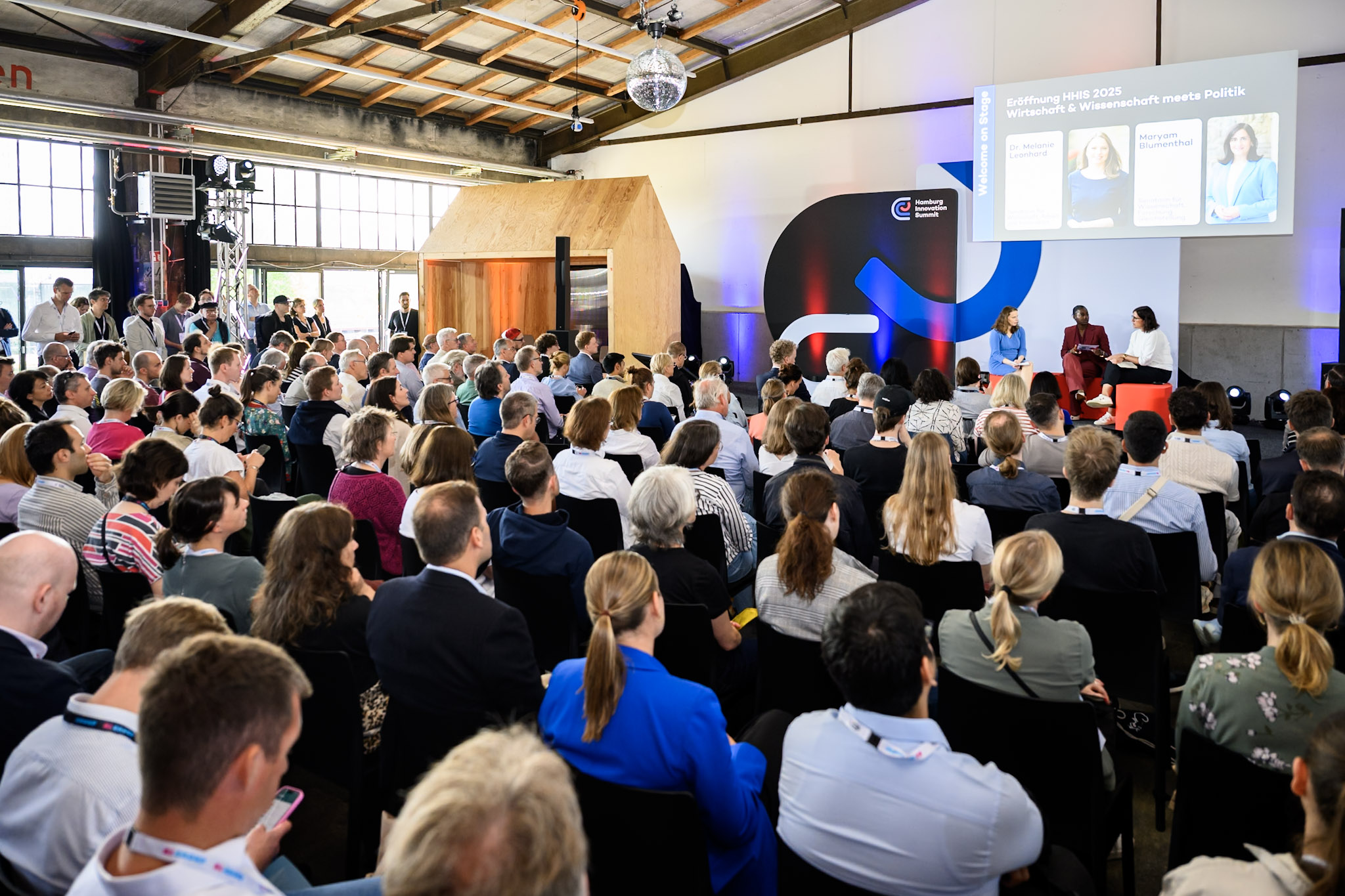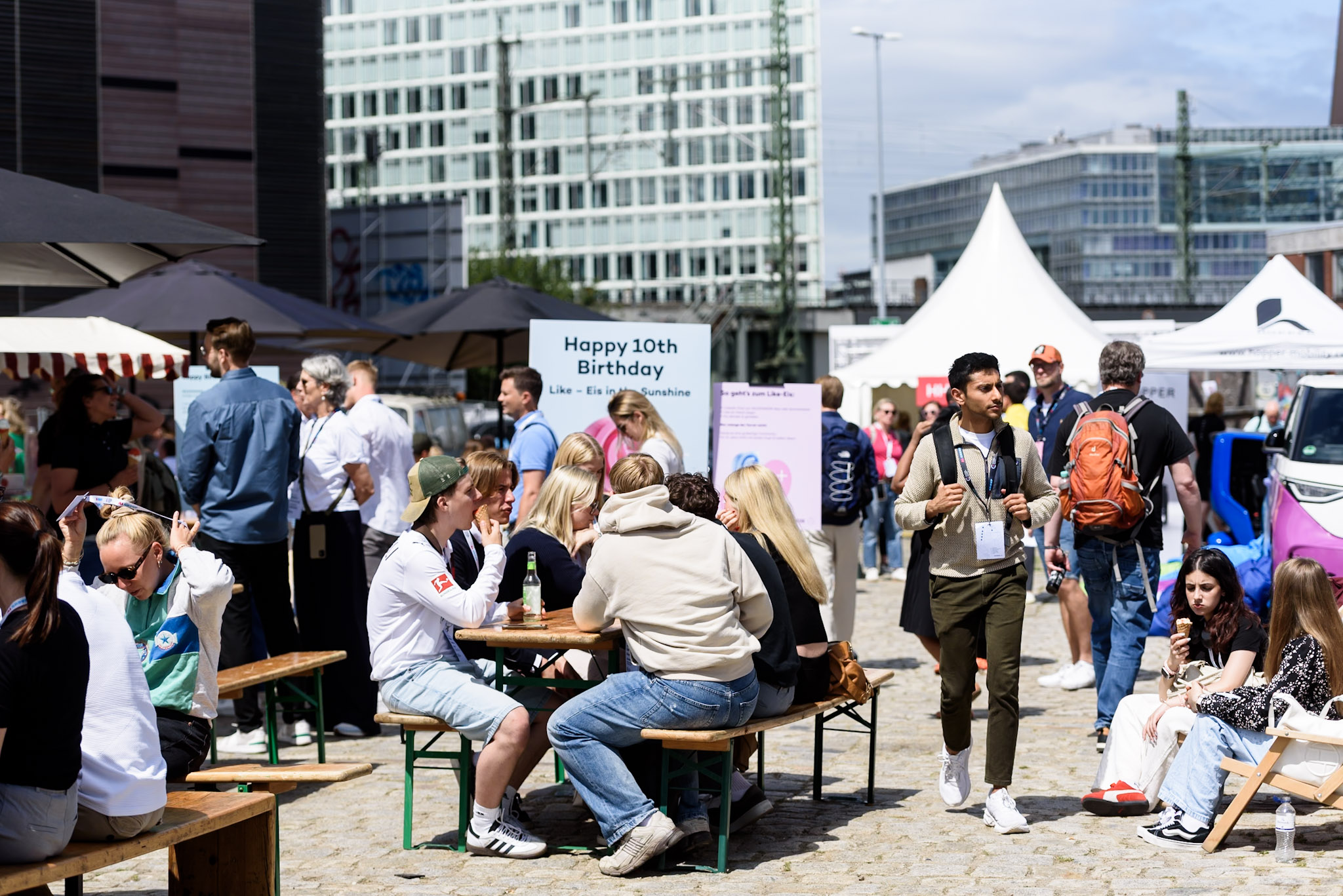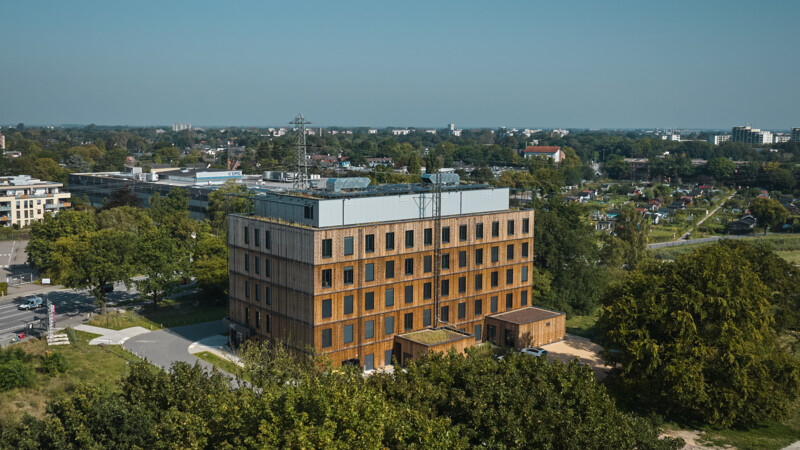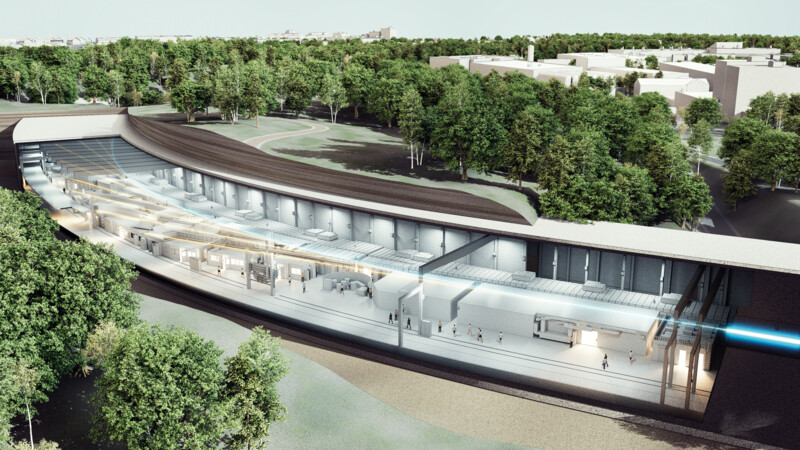"Innovation" is defined in many ways most of which were tangible during the anniversary summit. More than 80 items on the agenda with 140 speakers on six stages and a 1,800 square metre exhibition area highlighted the lasting impact of AI, quantum computing, novel foods, mobility and urban development, crafts 4.0, climate and energy, advanced materials, social innovation, entrepreneurship, the war for talent and health and lifestyle, as well as the application of science and technology on politics, business and society. Peter Tschentscher, the Mayor of Hamburg, also attended the event and spoke to numerous exhibitors.
Innovation is essential for prosperity in future, and generating it is at the forefront of everyone's mind. The 10th Hamburg Innovation Summit (HHIS) focused Thursday (July 10, 2025), on how Hamburg is positioned in this respect. Dubbed the "largest innovation festival in the metropolitan region", the event attracted over 3,000 innovation enthusiasts — almost twice as many as last year — to the industrial halls in Oberhafen. During the opening, Melanie Leonhard, Senator for Economics, Labour and Innovation, said: "We are particularly advanced in Hamburg when it comes to the importance of innovation for people, e.g., in the health sector."
Innovation on six stages

Hamburg wins national lighthouse competition
The announcement at the summit that the recently founded startup factory, "Impossible Founders", now has more than EUR 50 million in funds available following the German government's approval of funding for deep tech innovations was met with great enthusiasm. Foundations and companies in Hamburg are putting EUR 40 million of the total amount towards this endeavor. Emphasis is on green technologies and developing new materials in connection with AI and data science. "What great news for Hamburg! The Impossible Founders shows what is possible when business, science, foundations and politics work together," Leonhard remarked.
Innovation needs spaces
Innovation requires ideas, courageous people to execute them, and environments in which they can flourish. During the "Hamburg Innovation Radar" panel, Nina Alswede, Key Account Manager at the Hamburg Invest business development agency, said Hamburg is on the "right track, focusing on the trends, projects and players driving innovation" in the city. The innovation parks in Altona, Bergedorf, Finkenwerder and Harburg, some of which are still being built, and the tecHHub Hamburg are great examples. Networking is already going well. "A city's development in terms of innovation is not a project that can be considered in isolation. We need deep-tech solutions in science to be truly innovative," she stressed.

Next big thing
Now that AI has changed almost every aspect of the economy, the next big game changer is quantum technology. Enter the COOKIE project presented by the Fraunhofer Institute as part of Hamburg's first quantum computer strategy. Enter the COOKIE project, presented by the Fraunhofer Institute as part of Hamburg's first quantum computer strategy. COOKIE is an AI-supported solution for detecting damage to empty containers, which should make port logistics more efficient and safer.
The German Ministry of Research, Technology and Space (BMFTR) recently prioritized DESY's X-ray light source Petra IV and the particle detector IceCub-Gen2 as "research infrastructure of national importance". The infrastructure is of high scientific excellence, innovation and transfer potential and boosts Science City Hamburg Bahrenfeld as a centre of innovation.
Startup Stage and Startup City Hamburg
Startup issues topped the agenda in almost all sections of HHIS. The Startup Stage focused on social entrepreneurship and venture clienting, among others, and featured pitches and information on funding opportunities. Startup City Hamburg hosted a panel entitled "From Migration to Innovation: Startup Successes in Hamburg", featuring founders with an immigrant background. Most delegates left the summit feeling both inspired and reassured. If it continues to fearlessly use the outstanding opportunities visible at the summit, Hamburg can definite innovate.
kk/pb
Sources and further information
Views innovation culture: Trend Monitor 2025
A non-representative monitor of trends took a snapshot of delegates' perceptions of innovation in Hamburg during the summit. Most respondents expressed optimism about the future, the survey found. Around 47% expressed confidence about the prospects for innovation over the next five years. However, the biggest obstacles to innovation are a pronounced culture of fear of change (32.8%), excessive bureaucracy (29.5%), and a lack of willingness to take risks (27.9%), all of which have to be overcome.
More
Similar articles

Networked research central to tecHHub Hamburg

Two "nationally significant" projects at DESY

Three promising fields of application for quantum computing
